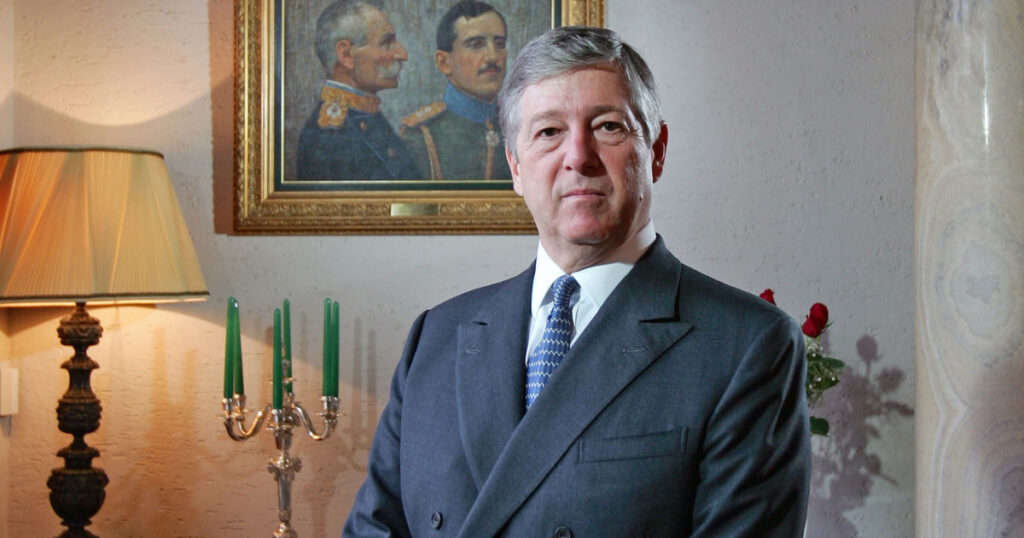His Majesty King Alexander II
(17. July 1945-)

His Majesty King Alexander II, the titular King of Yugoslavia and Serbia, was born on July 17, 1945 in Suite 212 of the Claridge’s Hotel in London, which was declared Yugoslav extraterritorial for the occasion, so that the heir to the throne would be born on the soil of his own country as his homeland was under occupation.
He is the only son of His Majesty King Peter II and Queen Alexandra of Greece and Denmark.
He was the Crown Prince of the Democratic Federative Yugoslavia for four and a half months from birth until the communist authorities illegally abolished the monarchy and banished the royal family, declaring him an enemy as an infant. He was baptised in Westminster Abbey according to the Orthodox rite by Patriarch Serbian Gavrilo, and his godparents were British King George VI and Princess Elizabeth, the future Queen Elizabeth II.
The title of Crown Prince ceased at the moment of his father’s death on November 3, 1970, from then on it reads His Majesty King Alexander II Karađorđević, but he continues to use the title of Crown Prince in public.
King Alexander II was educated at Le Rosey in Switzerland, the Culver Military Academy in Indiana (USA), Gordonstoun in Scotland, and Millfield in England. He then joined the United Kingdom’s Royal Military Academy. From 1966, as an officer in the British Army where he rose to the rank of Captain, he served in the 16/5th The Queen’s Royal Lancers in the Middle East, Italy, and West Germany. In 1972, he won the British Army skiing championship. He left military service in 1972 to pursue a business career.
He married in 1972 in Villamanrique de la Condesa with Princess Maria da Gloria of Orléans-Braganza, a relative of Spanish King Juan Carlos I, from the Brazilian Imperial House. Three sons were born to them: Peter (February 5, 1980) and twins Philip and Alexander (January 15, 1982). That marriage ended in divorce in 1983.
He married for the second time in 1985 in London with Katherine Batis from Athens.
In 1991, accompanied by his family, he visited Serbia for the first time but could only stay for 3 days. He did not interfere in the political life in Serbia, although he was sympathetic to the anti-communist and anti-Milošević opposition. In November 1999, he gathered the opposition in Budapest for a large conference of democratic opposition and then participated in meetings in Banja Luka in January, and Athens in April 2000.
Since his permanent return to the homeland in 2001, King Alexander II has been exclusively involved in humanitarian work and assists institutions, families, and individuals in need, and over the years, his efforts have delivered over 30 million euros in aid. In 2001 alone, he secured 400,000 marks for the construction of the Temple of Saint Sava on Vračar.
It was not until July 5, 2015, before his 70th birthday, that the Higher Court in Belgrade established that Decree 392, which was adopted by the Presidency of the National Assembly on August 3, 1947, was null and void from the moment of its adoption, as well as all its legal consequences, and he was rehabilitated.
Following his desire and the endeavour to return to Serbia the remains of members of his family who died abroad, he was the initiator and organiser of the transfer of the mortal remains of King Peter II, Queen Alexandra, Queen Maria, and Prince Andrej on May 26, 2013 to Oplenac, to the endowment of the Royal Family, thus fulfilling the vow of his great-grandfather King Peter I the Great Liberator that all Karađorđevićs rest in Oplenac.
